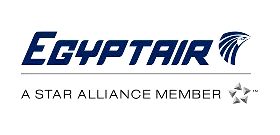 EgyptAir Targets Chicago and Los Angeles for Major U.S. Expansion in 2026
EgyptAir Targets Chicago and Los Angeles for Major U.S. Expansion in 2026
EgyptAir is poised to make a significant leap in its transatlantic ambitions, having formally applied to the U.S. Department of Transportation (DOT) for the authority to launch new nonstop flights from Cairo to both Chicago and Los Angeles. If approved, these routes will expand the Egyptian flag carrier’s U.S. network to five cities, marking a pivotal moment for African aviation and opening fresh opportunities for the continent’s travel sector to connect with North America’s Midwest and West Coast gateways.
The airline’s applications detail plans to commence service to Los Angeles in May 2026 and to Chicago in June 2026. EgyptAir has urged the DOT to grant the necessary approvals swiftly, emphasizing the need to facilitate early marketing and advance ticket sales for both routes. As a member of the Star Alliance, EgyptAir highlights that these new connections will offer “significant new transportation options for passengers and shippers,” reinforcing its role as a bridge between Africa, the Middle East, and North America.
This expansion is not just about adding destinations; it is a strategic move to position EgyptAir as a key player in connecting regions that have traditionally been underserved by direct air links. For African travel professionals, this development signals a new era of accessibility and partnership potential, especially as demand for seamless travel between Africa and the United States continues to grow.
EgyptAir’s journey in the U.S. market began in 1986 with the launch of flights to New York’s John F. Kennedy International Airport (JFK). The airline has since expanded its North American footprint, introducing service to Washington Dulles International Airport (IAD) in 2019 and Newark Liberty International Airport (EWR) in 2023. Currently, EgyptAir operates daily flights to JFK using a mix of Boeing 777-300ERs and 787-9 Dreamliners, alongside twice-weekly flights to EWR and three times weekly to IAD, both with 787-9s. The carrier’s North American network also includes a five-times-weekly route to Toronto Pearson International Airport, underscoring its commitment to serving key transatlantic markets.
Market data reveals the scale of opportunity these new routes represent. In 2024, total U.S.-Egypt origin and destination (O& D) traffic reached approximately 760,000 two-way passengers, a slight dip of about 6% from the previous year. The Cairo-New York corridor remains the largest, with 225,000 passengers, followed by Cairo-Washington (80,000), Cairo-Los Angeles (58,400), and Cairo-Chicago (35,400). The addition of direct flights to Chicago and Los Angeles is expected to stimulate further demand, making it easier for travelers and cargo to move between Africa and the U.S. heartland and West Coast.
For African travel industry stakeholders, these developments are more than just new flight options—they represent a shift in the competitive landscape. EgyptAir’s expansion is likely to encourage other African carriers to consider similar transatlantic ventures, especially as the continent’s aviation sector matures and seeks to capture a greater share of global traffic. The move also aligns with broader trends in the industry, where airlines are increasingly targeting secondary U.S. cities to tap into new markets and diversify their revenue streams [[4]](https://www.travelandtourworld.com/news/article/egyptair-expands-us-network-nonstop-flights-to-chicago-and-los-angeles-set-for-2026/).
EgyptAir’s current fleet, as reported by the CAPA Fleet Database, consists of 64 aircraft in service, including eight 787-9s, five 777-300ERs, four A330-200s, and four A330-300s. The airline is also preparing for the future with an order for 16 A350-900s, signaling its intent to maintain a modern, fuel-efficient fleet capable of supporting long-haul growth. This investment in next-generation aircraft will be crucial as EgyptAir seeks to deliver a competitive product on these new U.S. routes, offering passengers enhanced comfort and reliability.
The strategic importance of Chicago and Los Angeles cannot be overstated. Chicago serves as a major hub for business, culture, and logistics in the American Midwest, while Los Angeles is a global gateway to the Pacific Rim and a magnet for tourism, entertainment, and trade. By establishing direct links to these cities, EgyptAir is not only catering to the growing diaspora and business communities but also positioning itself as a preferred carrier for travelers connecting between Africa, the Middle East, and North America.
For Africa’s travel sector, the implications are far-reaching. The new routes will enable easier access to the U.S. for both leisure and business travelers, foster new tourism flows, and create opportunities for collaboration with American partners. They also offer African tour operators, hospitality providers, and destination marketers a fresh platform to promote the continent’s diverse attractions to a broader audience. As EgyptAir strengthens its U.S. presence, African travel professionals should be prepared to leverage these connections, develop tailored products, and anticipate shifts in traveler preferences and expectations.
Looking ahead, EgyptAir’s U.S. expansion is likely to set the stage for further innovation and competition in the African aviation market. As more carriers explore direct long-haul routes and invest in modern fleets, the continent’s connectivity with the rest of the world will only improve. This evolution will require travel industry professionals to stay agile, embrace new technologies, and cultivate partnerships that can deliver value to both African and international travelers.
In summary, EgyptAir’s planned nonstop flights from Cairo to Chicago and Los Angeles represent a bold step forward for African aviation. By bridging new markets and enhancing global connectivity, the airline is not only expanding its own horizons but also opening doors for the entire African travel sector to thrive in an increasingly interconnected world.
